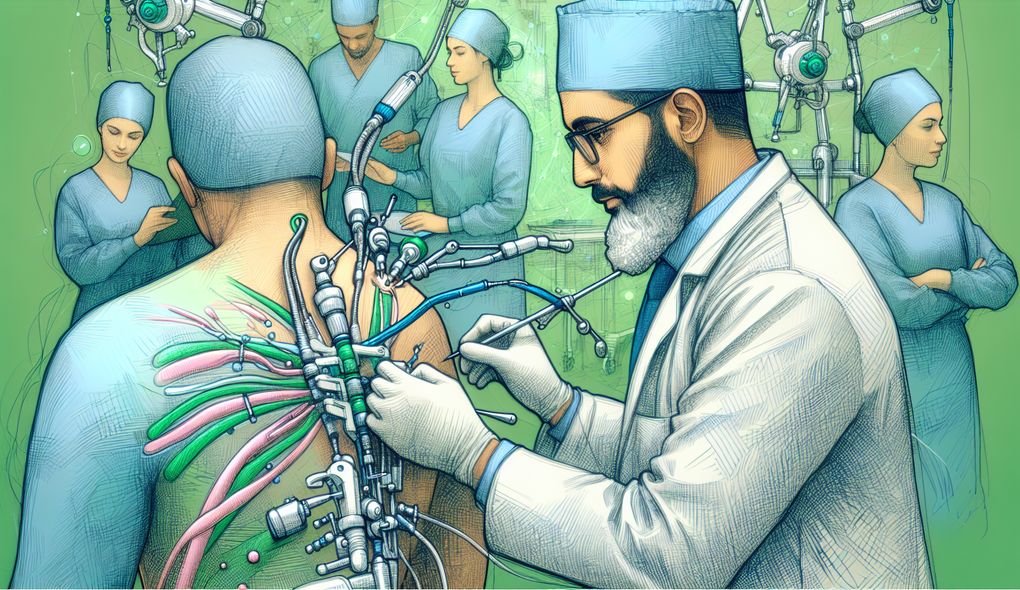Give an example of a time when you had to communicate complex medical information to a patient in a clear and understandable way.
INTERMEDIATE LEVEL

Sample answer to the question:
I had a patient who was diagnosed with chronic back pain that required a complex treatment plan involving both medication and physical therapy. To communicate this information clearly, I first took the time to build rapport with the patient and establish trust. I then used simple language and visual aids, such as diagrams and models, to explain the underlying causes of the pain and the different treatment options available. I also made sure to answer any questions the patient had and provided written materials for them to refer to later. By breaking down the information into manageable chunks and using clear examples, the patient was able to understand the complexities of their condition and make informed decisions about their treatment.
Here is a more solid answer:
I had a patient with chronic back pain who required a comprehensive treatment plan. To effectively communicate the complex medical information, I utilized my strong communication skills and patient-centered approach. First, I established rapport with the patient, creating a comfortable environment for open discussion. I then took the time to explain the underlying causes of the pain, using clear language and visual aids to enhance understanding. I discussed the different treatment options, including medication and physical therapy, and emphasized the benefits and potential risks of each. Throughout the conversation, I actively listened to the patient's concerns and addressed them promptly. I also provided written materials, such as pamphlets and brochures, for the patient to refer to later. By providing clear explanations, addressing concerns, and offering written resources, I ensured that the patient had a thorough understanding of their condition and treatment plan.
Why is this a more solid answer?
The answer expands upon the basic answer by providing more specific details and highlighting the candidate's skills and qualifications. It demonstrates strong communication skills, a patient-centered approach, and organizational skills. However, it could still provide more examples of the candidate's clinical skills and continuous learning in pain management.
An example of a exceptional answer:
I had a patient with chronic back pain who required a comprehensive treatment plan. To effectively communicate the complex medical information, I utilized my strong communication skills, clinical expertise, and patient-centered approach. First, I established a comfortable environment by actively listening to the patient's concerns and showing empathy. I then conducted a detailed assessment to identify the underlying causes of the pain and explained the results in a clear and understandable way, using visual aids and simplified terminology. I discussed the various treatment options, including medication, physical therapy, and interventional procedures, presenting the benefits, risks, and expected outcomes of each option. I also addressed the patient's questions and actively involved them in the decision-making process. To ensure the patient's understanding, I provided written materials tailored to their needs and preferences. Throughout the treatment, I continuously monitored the patient's progress, adjusted the plan as necessary, and offered guidance and support. By effectively communicating complex medical information, incorporating clinical expertise, and maintaining a patient-centered approach, I empowered the patient to actively participate in their pain management journey.
Why is this an exceptional answer?
The answer provides a comprehensive and detailed response by highlighting the candidate's strong communication skills, clinical expertise, patient-centered approach, and dedication to continuous learning. It demonstrates the candidate's ability to effectively communicate complex medical information, involve patients in the decision-making process, and tailor the information to the patient's needs. The answer also emphasizes the candidate's ability to continuously monitor and adjust the treatment plan based on the patient's progress. However, it could provide more specific examples of interventional procedures and collaboration with other healthcare professionals.
How to prepare for this question:
- Reflect on past experiences where you had to communicate complex medical information to patients.
- Familiarize yourself with different pain management techniques and their benefits, risks, and expected outcomes.
- Practice using simple language and visual aids to explain complex medical concepts.
- Develop your active listening and empathy skills to create a comfortable environment for open discussion.
- Stay updated with the latest advances in pain management through continuous learning and professional development activities.
What are interviewers evaluating with this question?
- Communication skills
- Clinical skills
- Patient-centered approach
- Organizational skills

